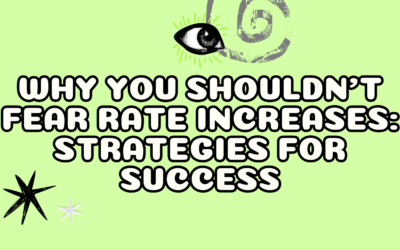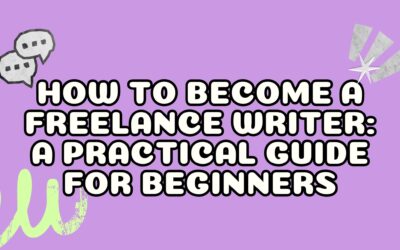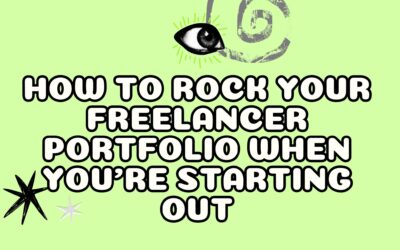When I was younger I desperately wanted to be a writer, but I thought it was impossible to get paid to write.
Spending my days pouring words out onto a sheet of paper and actually getting cold, hard cash (or cold, hard figures in my bank account) was the dream, but I was told from every angle that it wasn’t a sensible career choice.
Instead, I went into marketing, where I could spend some of my time writing, but mostly it was delving into analytics, stuffing posts with keywords, and attending boring meeting after boring meeting about projects I couldn’t care less about.
But then I upped and left the UK for Spain in 2014 and I had to make it work as a freelance writer. I had to get paid to write if I wanted to pay my bills and prove all the naysayers wrong.
So, if you’re in the same boat as I was and desperately want to get paid to write, I’m here to tell you that it’s ABSOLUTELY POSSIBLE! In fact, it’s SO doable if you’re strategic and put in the work beforehand.
How to Get Paid to Write: Change Your Mindset
When I tell people I’m a writer, a lot of them ask me how many books I’ve published. When I tell them the answer is absolutely zero, they frown.
“But how can you be a writer if you haven’t published any books?!”
Valid question.
Except this is where the mindset around writing needs to change. Not all writers are paid to write books. In fact, it’s a very small minority that can actually make a living doing that.
But look around you.
Look at how many words you see every single day on posters, websites, menus, and product descriptions – all of these have been written by a writer who probably got paid to do it.
So first of all, expand your horizons.
Start writing a list of all the different kinds of writing you come across in a day and circle the ones that interest you the most.
I’ll help you get started:
- Website copy
- Blog posts
- Posters and leaflets
- Product descriptions on ecommerce sites
- Case studies
- Whitepapers
- Ebooks
- Books
- Instruction manuals
- Guides
- Menus
All of these are valid forms of writing that you can get paid for. And this is just the start. Dig a bit deeper and you’ll find that there’s a writing job lurking around every corner – you just have to look closely enough.
But if you want to make a successful living as a paid writer, you have to be strategic.
The most successful freelance writers I know do and have done several things to make sure their businesses are rock solid – and that’s exactly what I’m going to show you here.
1. Choose a Type of Writing
If you’re a Jack-of-all-Trades, you’re a master of none.
This famous saying applies so much to the freelance writing world. Choosing a type of writing to focus on (or a couple of types) – whether it’s case studies, blog posts, or website copy – means you can build up a portfolio full of those types of writing.

My portfolio of SaaS and ecommerce blog posts
As a result, you elevate yourself to expert status and can charge more. It also makes it far, far easier to focus your website and messaging so you reach the right people.
For example, it’s much more powerful to have your slogan as “expert case study writer” than “freelance writer for hire”.
It’s worth experimenting with a few different types of writing to begin with to see what you’re good at, what you enjoy, and what’s in demand. You can then start to hone down your services to offer just one or two types of writing and centre your business around those.
2. Choose the Types of Business You Want to Help
While it can be nice to get paid to write about anything and everything, choosing an industry and a type of business you want to help will help you niche even further.
Again, this will ensure you become a go-to writer in that industry which means you can charge more and get more clients – it’s a win-win situation.
So, as well as choosing a type of writing you want to do, pick an industry to do it for as well.
Here are some examples to spark your inspiration:
- Case study writer for finance companies
- Blog post writer for beauty brands
- Website copywriter for food and drink brands
- Product description writer for eco-friendly clothing companies
- Brochure writer for travel companies
You get the gist.
As soon as you pair a type of writing with an industry, you instantly have a niche which is your main selling point.
This will position you amongst the thousands of other freelance writers who sell themselves as generalists.
At the start of my freelance career, I pitched myself as an anything and everything writer. I wrote all sorts of weird stuff for a real range of companies. But I ended up doing stuff I didn’t enjoy and struggling to land long-term work that paid well.
As soon as I focused my efforts on a writing type (longform blog posts) and an industry (SaaS and ecommerce), I noticed a dramatic increase in the amount of clients who wanted to hire me and my income. Niching really does work if you want to get paid to write online.
3. Find Clients that Need Your Services
The next step is finding clients that need your services.
Because you have chosen an industry to focus on, this will be much easier than using a scattergun approach and trying to target anyone and everyone.
Start with a simple Google search that includes the industry you’re targeting.
For example, if you want to write for beauty brands, simply search “beauty brands”, “best beauty brands”, or “beauty brands in [location]” to get some initial ideas.
Put these all into a spreadsheet ready for the next stage of the process.

4. Share Your Value With Clients
The final step is reaching out to the brands you’ve collected in your spreadsheet.
I share a number of creative ways to find high-paying, relevant clients in my Pitch & Prosper course. Find out more here.
Once you’ve got around 50 brands to start with, you can begin the outreach (or cold email) process. Drop potential clients an email outlining who you are, what kind of writing you specialise in, why they might need your services, and what value hiring you will bring them.
Here’s a quick example broken down.
Let’s say you write case studies for finance companies.
Your cold email might include the following information:
- Who you are and what you specialise in: I’m Lizzie, an experienced case study writer for finance brands just like yours
- Why they might need your services: case studies are a great way to show proof of product and consistently convert prospects who are further through the sales funnel
- What value you’ll bring them: I can create a collection of case studies for you that you can use throughout the sales cycle to convince and convert more buyers
This is just a rough example, but you get the gist.
The key is to place emphasis on what the client will get out of working with you. Basically, make it about them and not about you.
Learning how to get paid to write articles and other types of content is simply a case of being strategic and taking the specific steps laid out in this post.
If you can do that, you’ll start to get traction in your business and, once you’ve landed your first client, it becomes much easier to attract the next, and the next… and the next.
Happy freelancing!






0 Comments